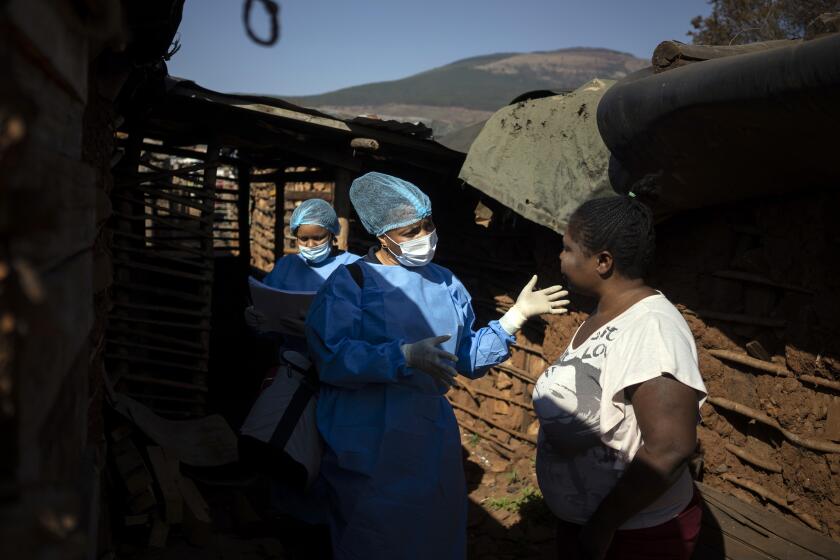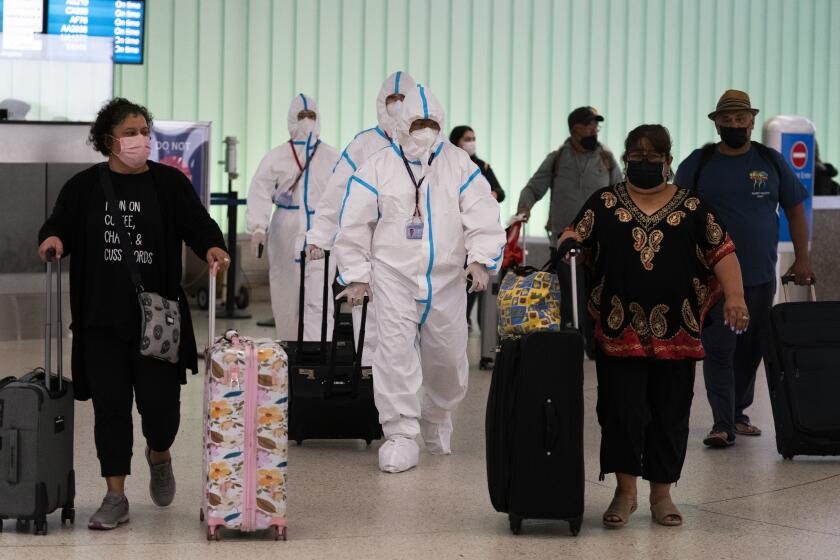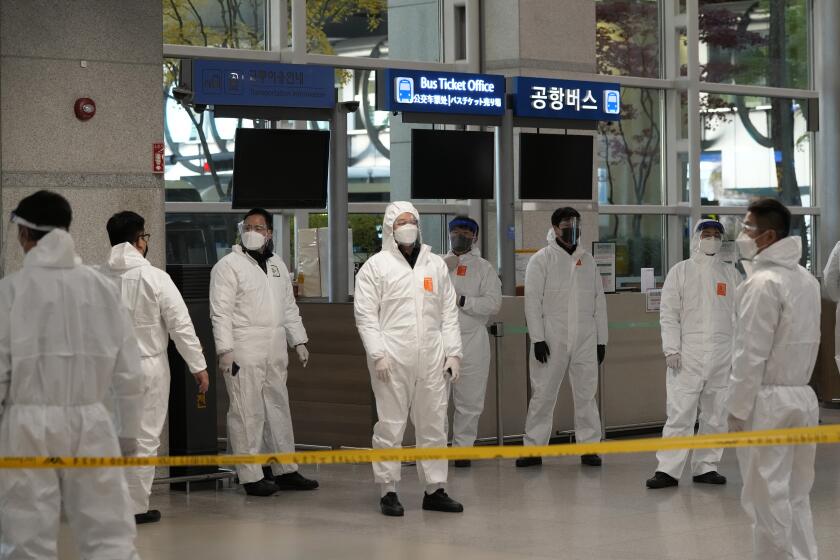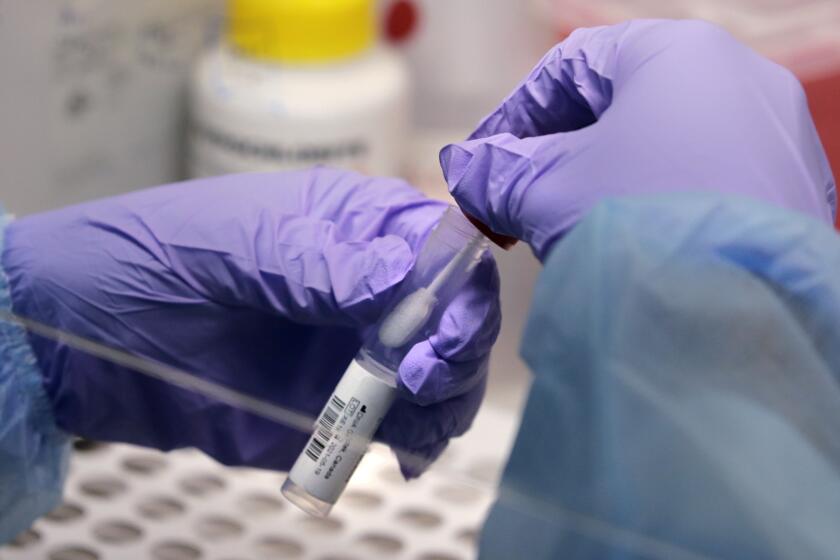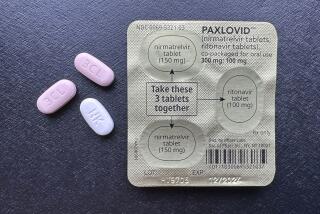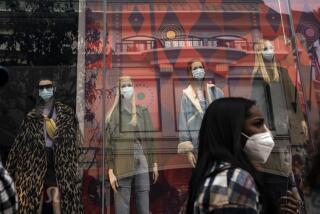Omicron and Delta variants together spell the return of unpopular restrictions
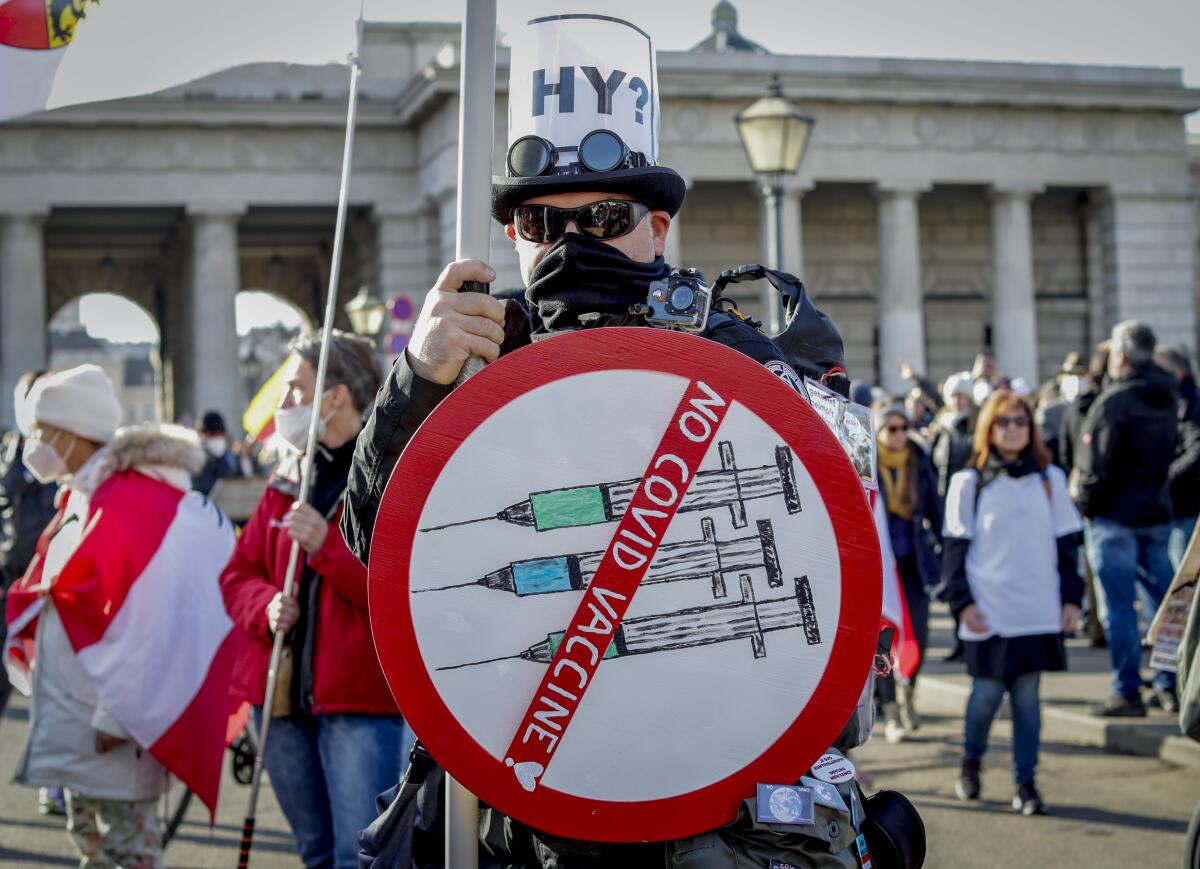
PARIS — Greeks who are over 60 and refuse COVID-19 vaccinations could be hit with monthly fines of more than one-quarter of their pensions — a get-tough policy that the country’s politicians say will cost votes but save lives.
In Israel, potential carriers of the new Omicron variant could be tracked by the nation’s domestic security agency in apparent defiance of a Supreme Court ruling from the last go-around.
Weekly protests in the Netherlands over the country’s 5 p.m. lockdown and other new restrictions have descended into violence, despite what appears to be overwhelming acceptance of the rules.
With the Delta variant of the coronavirus still pushing up cases in Europe and growing fears over the new Omicron strain, governments around the world are weighing new measures for populations tired of hearing about restrictions and vaccines. It’s a thorny calculus made more difficult by the prospect of backlash, increased social divisions and, for many politicians, the fear of being voted out of office.
“I know the frustration that we all feel with this Omicron variant, the sense of exhaustion that we could be going through this all over again,” British Prime Minister Boris Johnson said Tuesday, two days after the government announced that masks would be mandatory again in stores and on public transit and required all visitors from abroad to undergo a COVID-19 test and quarantine. “We’re trying to take a balanced and proportioned approach.”
New restrictions, or variations on old ones, are cropping up around the world, especially in Europe, where leaders are at pains to explain what looks like a failed promise: that mass vaccinations would mean an end to widely loathed limitations.
The Omicron variant was probably incubated in a person with poorly controlled HIV who struggled to clear a coronavirus infection.
“People need normality. They need families. They need to see people, obviously safely, socially distancing, but I really think, this Christmas now, people have had enough,” said Belinda Storey, who runs a stall at a Christmas market in Nottingham, England.
In the Netherlands, where the curfew went into effect last week, mounted police break up demonstrations against the new lockdown, which is among the world’s strictest. But most people appeared resigned to rush through errands and head home before curfew.
“The only thing we can do is to listen to the rules, follow them and hope it’s not getting worse. For me, it’s no problem. I’m a nurse. I know how sick people get,” said Wilma van Kampen.
In Greece, residents over 60 face fines of 100 euros ($113) a month if they fail to get vaccinated. The fines will be tacked onto tax bills in January.
The dangers of the Omicron COVID-19 variant are unknown. But many Americans aren’t very worried.
About 17% of Greeks in that age cohort are unvaccinated despite various efforts to prod them to get their shots, and nine in 10 Greeks currently dying of COVID-19 are over 60.
“I don’t care whether the measure will cost me some extra votes in the elections,” Prime Minister Kyriakos Mitsotakis said Wednesday after lawmakers passed the measure. “I am convinced that we are doing the right thing, and I am convinced that this policy will save lives.”
Employing a carrot instead of a stick, Slovakia’s government is proposing to give people 60 and older a 500-euro ($568) bonus if they get vaccinated.
In Israel, the government this week approved resuming the use of a controversial phone-monitoring technology to perform contact-tracing of people confirmed to have the Omicron variant.
South Korea’s first confirmed coronavirus infections with the new Omicron variant are linked to arrivals from Nigeria.
Israeli rights groups have decried the use of the technology as a violation of privacy rights, and others have noted that its accuracy in indoor places is flawed, leading to large numbers of people being wrongly flagged. The Supreme Court earlier this year issued a ruling limiting its use.
“We need to use this tool in extreme situations, and I am not convinced we are in that kind of situation,” Justice Minister Gideon Saar told Israeli public broadcaster Kan this week.
In South Africa, which alerted the World Health Organization to the Omicron variant, previous restrictions included curfews and a ban on alcohol sales. This time, President Cyril Ramaphosa is simply calling on more people to get vaccines “to help restore the social freedoms we all yearn for.”
Germany on Thursday followed Austria’s lead and imposed a lockdown on unvaccinated people only, banning them from nonessential stores and cultural and recreational venues. Officials have also agreed to require masks in German schools and impose new limits on private meetings.
The Bundestag, Germany’s legislature, is expected to take up the issue of a general vaccine mandate in coming weeks.
Chancellor Angela Merkel said the measures were necessary because hospitals risk becoming overloaded. Infections in the country have again topped 70,000 in a 24-hour period.
In the U.S., President Biden has used a combination of pressure and urgent appeals to induce people to get their first shots or a booster. On Thursday, he is set to announce free at-home coronavirus tests and other measures, including a requirement that all air travelers to the U.S. be tested within a day before boarding their flight, instead of the current three days.
Chile has taken a harder line since the emergence of Omicron: People over 18 must receive a booster dose every six months to keep their pass that allows access to restaurants, hotels and public gatherings.
Chile never dropped its requirement to wear masks in public — probably the most common renewed restriction around the world.
Madhukar Pai of McGill University’s School of Population and Public Health said that masks are an easy and pain-free way of keeping transmission down, but that cheap, at-home tests need to be much more widespread, in both rich and poor countries.
He said both approaches give people a sense of control over their own behavior that is lost with a lockdown and make it easier to accept the need to do things like cancel a party or stay inside.
As expected, the Omicron coronavirus variant, first detected last month, has reached the U.S., with the first case found in California.
Pai said requiring boosters universally, as is essentially the case in Israel, Chile and many countries in Europe, including France, will only prolong the pandemic by making it harder to get first doses to the developing world. That raises the odds of still more variants.
Lockdowns, he said, should be the very last choice.
“Lockdowns only come up when a system is failing,” he said. “We do it when the hospital system is about to collapse. It’s a last resort that indicates you have failed to do all the right things.”
More to Read
Sign up for Essential California
The most important California stories and recommendations in your inbox every morning.
You may occasionally receive promotional content from the Los Angeles Times.
